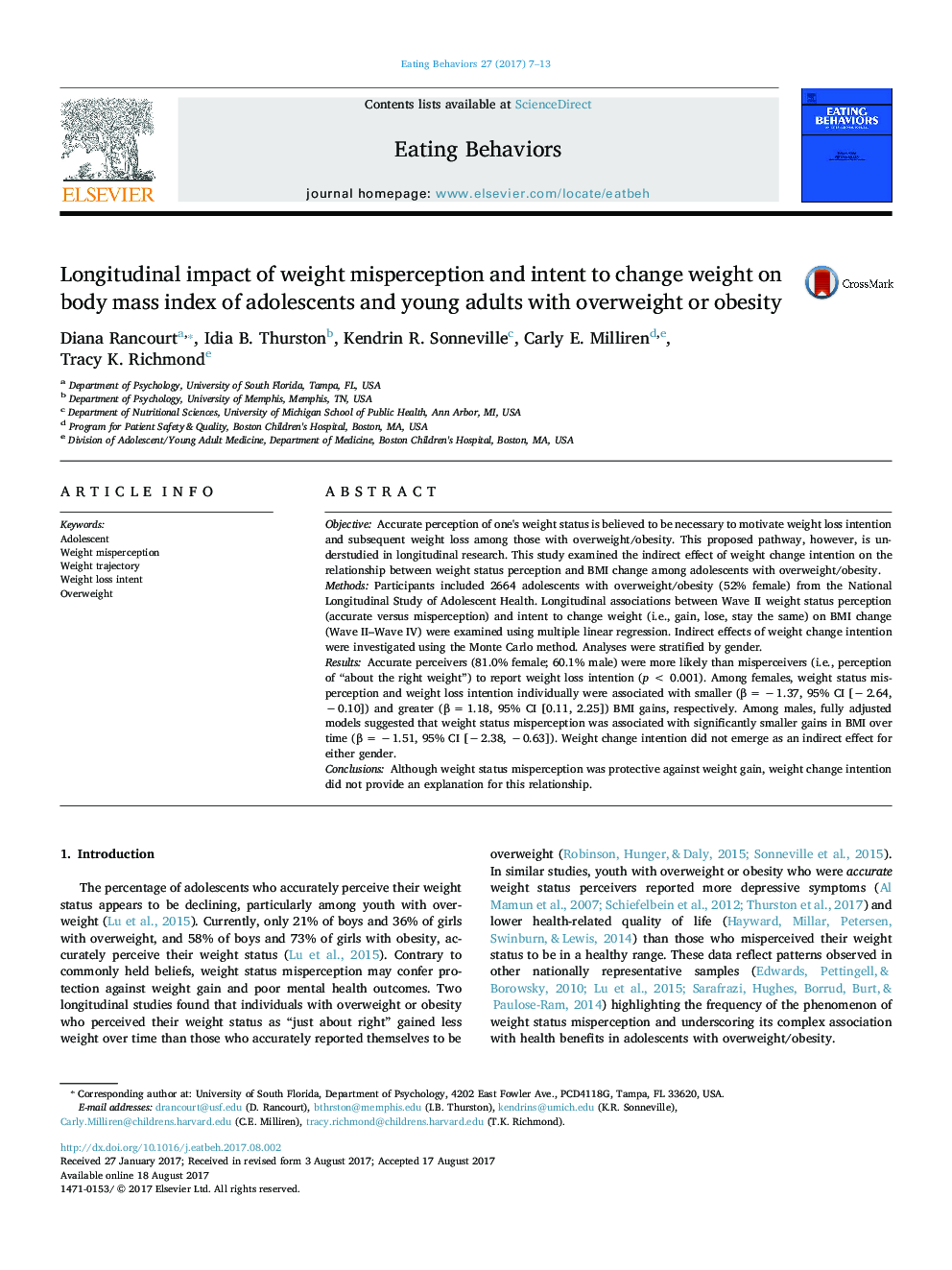| Article ID | Journal | Published Year | Pages | File Type |
|---|---|---|---|---|
| 5038741 | Eating Behaviors | 2017 | 7 Pages |
â¢Reasons why weight misperception is protective against weight gain are unknown.â¢Intentions to change one's own weight were investigated as a possible mechanism.â¢Weight change intention was not directly or indirectly associated with BMI change.â¢Additionally, gender effects did not emerge.
ObjectiveAccurate perception of one's weight status is believed to be necessary to motivate weight loss intention and subsequent weight loss among those with overweight/obesity. This proposed pathway, however, is understudied in longitudinal research. This study examined the indirect effect of weight change intention on the relationship between weight status perception and BMI change among adolescents with overweight/obesity.MethodsParticipants included 2664 adolescents with overweight/obesity (52% female) from the National Longitudinal Study of Adolescent Health. Longitudinal associations between Wave II weight status perception (accurate versus misperception) and intent to change weight (i.e., gain, lose, stay the same) on BMI change (Wave II-Wave IV) were examined using multiple linear regression. Indirect effects of weight change intention were investigated using the Monte Carlo method. Analyses were stratified by gender.ResultsAccurate perceivers (81.0% female; 60.1% male) were more likely than misperceivers (i.e., perception of “about the right weight”) to report weight loss intention (p < 0.001). Among females, weight status misperception and weight loss intention individually were associated with smaller (β = â 1.37, 95% CI [â 2.64, â 0.10]) and greater (β = 1.18, 95% CI [0.11, 2.25]) BMI gains, respectively. Among males, fully adjusted models suggested that weight status misperception was associated with significantly smaller gains in BMI over time (β = â 1.51, 95% CI [â 2.38, â 0.63]). Weight change intention did not emerge as an indirect effect for either gender.ConclusionsAlthough weight status misperception was protective against weight gain, weight change intention did not provide an explanation for this relationship.
